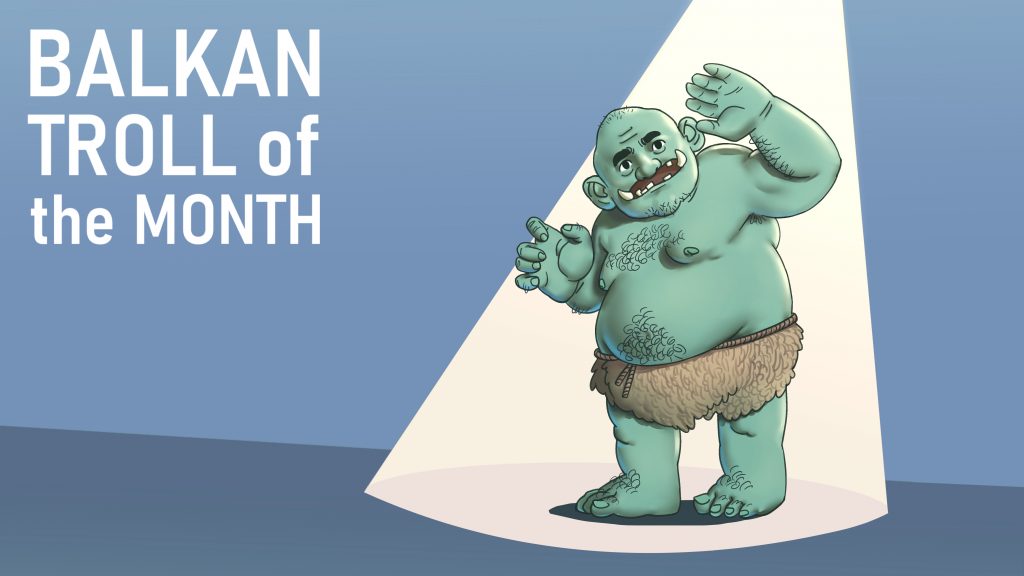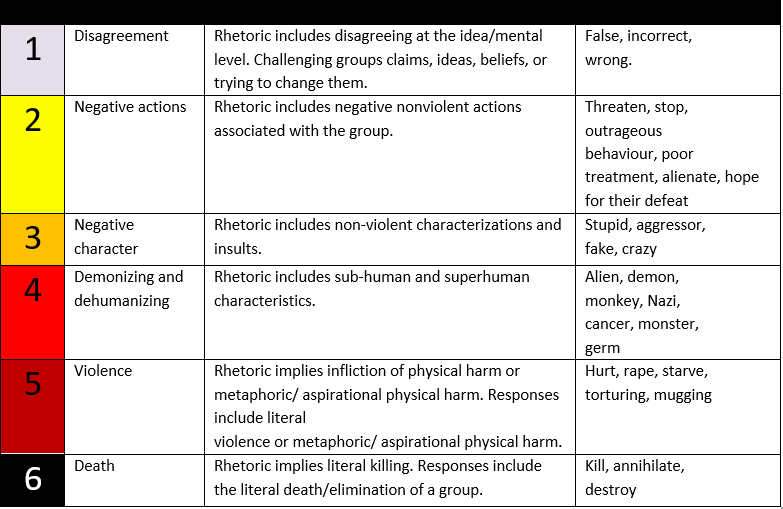HELP US CHOOSE TROLL OF THE MONTH
March 7, 2023
If you encouner a problematic media content you think it is hateful of harmful, get in touch with us using our social media – Instagram or Facebook, or write to us on rdn@media-diversity.org. Please send us a short information about the content you report to us. Learn about how we choose the Troll of the month, it can help you check your findings and write an explanation:
The goal of the Reporting Diversity Network 2.0 monitoring is to identify and document the most significant cases (‘incidents’) of hate speech and divisive discourses in the Western Balkans media.
Incidents are defined by the speaker regardless of where they occurred, but monitoring refers to their media coverage. They can originate in the Parliament, party event or any public occasion, not necessarily being generated by the media, but have to be reported or spread out by the media.
The media can be traditional (television, newspaper etc.) or social media (Facebook, Twitter, Insagram, TikTok etc.) or combination of both.
The purpose of the monitoring is not a systemic overview of all the media in the country, overall media discourse, nor the content of selected media. The goal is to single out individual incidents of hate speech which are either reported or distributed by the media, investigate frequency of their occurrences and their major forms. Monitoring will identify who commits the incident but also how media transmit, amplify or critically counter the hate speech through their coverage.
Another equally important goal is to identify groups and individuals who are targeted in those incidents, what kind of hatred, insults and threats are they exposed to and what language is publicly used against them in various media settings and environments.
The Balkan Troll of the Month is an individual, a group of individuals or a media outlet that spreads hate based on gender, ethnicity, religion, or other diversity categories. The Balkan Troll is selected based on hate speech incidents identified across the Western Balkans region in that particular month.

The purpose of the Troll is to call out the most serious cases of hate speech and to expose the perpetuators in front of the public. We tend to inform the public on the reasons why the incident is problematic, and what the proper media representation should be.
Criteria to select Troll of the Month rely on monitoring methodology.
The monitoring focuses on the most significant ‘episodes’ of hate speech which can be identified as ‘incidents’. There are three criteria to select them:
First, they can be defined by the relevance of the person making the offence. State officials, political representatives, public personalities, people of authority or celebrities carry more weight and their speech is more consequential for the public opinion. Therefore the importance of the speaker determines the tone of public debate beyond the single incident.
Second, the incidents appearing across the media, either by being reported in many media or repeated though prolonged periods of time. Cases of viral hate speech, incidents that travel across media platforms or those with extended presence in certain media both have magnifying effects and therefore carry more significance than a random incident.
Third, public perception of the incident, its consequences, influence, harm, potential to cause chain reaction, be reprinted or become viral, adds to its significance even if the speaker would otherwise have been unnoticed. Due to rising importance of social media and its networking potential, certain incidents capture public attention and stir public sentiments by their inflammatory, intimidating and discriminatory nature amplified through comments and sharing.
In addition to the three above mentioned criteria, when selecting Troll of the Month sentiments that accompany the given incident is also taken into consideration.
Within sentiment analysis a score for each case should be given, except in situations when it is not feasible. The score ranges from 1 to 6, as shown in the table, according to the methodology of George Washington University. Pay attention: Not only can units of vocabulary have a hateful and non-hateful context, but language can be structured to communicate hateful context using sarcasm, double entendre, innuendo, euphemism, metaphor, and other forms of rhetorical obfuscation.

Based on the above criteria project representatives select three most serious cases, while the Troll of the Month is selected based on the votes of the project team members.
Each team member gives a vote to a single incident, and a Troll is selected based on the number of votes. In case there is an equal number of votes for two different incident, additional team member(s) is/are invited to vote.
